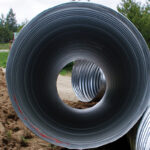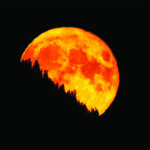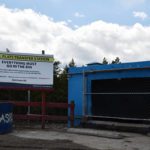Home »

Hong Kong dispute is coming to a crunch
 “Perceptions,” by Gerry Warner
“Perceptions,” by Gerry Warner
Op-Ed Commentary
A little more than a decade ago I visited Tiananmen Square. It was my first trip to China and I was nervous as I looked across the vast cobblestone plaza at the huge picture of Chairman Mao directly over the gate to the Forbidden City which was off limits to ordinary Chinese citizens for more than 500 years.
I was with a group of fellow Canadian travellers and our guide gave us only one direction before leading us out of the crowded square and into the Forbidden City a half-hour later – “Don’t make any speeches.” As if we needed to be reminded!
Everyone in our group, of course, was aware of the Tiananmen Square massacre in 1989 when hundreds, if not thousands, of Chinese people demonstrated for democracy right under Chairman Mao’s nose. None of us were going to repeat that mistake.
But that “mistake,” if it can be called that, has been repeated over the past month in a territory of China that makes the dictatorial Chinese leadership very nervous, if not hysterical. I’m referring to Hong Kong, of course, and the protests occurring there which are growing more violent almost every day and have the potential to destabilize the world’s second biggest economy and quite possibly the entire economy of the world.
And that will impact all of us. Even in far away Cranbrook.
Watching the news the other night, I couldn’t help but shudder as I saw the crowd of demonstrators surging through the Hong Kong Airport forcing hundreds of flights to be cancelled as they met a barrage of club-wielding riot police behind plexiglass shields and armed with tear gas and what appeared to be stun guns as they tried to beat the protestors into submission and failed miserably. No one was killed, but you could see blood on the floor of the terminal and protesters gamely trying to fight back as many were clubbed repeatedly.
It wasn’t a pretty scene and even more ominously there were also camera shots of a long line of armoured trucks parked just beyond the outskirts of Hong Kong reminiscent of the tanks that rolled into Tiananmen Square just before the massacre began.
So, what’s next? By the time you read this we may know. It’s obvious that the chaos gripping Hong Kong cannot continue indefinitely. The former British Colony on an island just off the coast of mainland China is a financial colossus that in the argot of the Great Recession of 2009 is “too big to fail.”
If it does fail and descends into anarchy the reverberations will be world-wide and threaten a global economy that is already extremely fragile under the burden of trillions in international debt, skittish interest rates and a U.S./China trade war largely fomented by Donald Trump with his “U.S. First” policy and zeal to “make America great again” by crushing America’s greatest rival.
Unfortunately, Trump is up against Chinese President for Life Xi Jinping, a callous and shrewd dictator, who commands the People’s Liberation Army, a 2.3 million force that is the largest army in the world and a further 510,000 soldiers in reserves. Who wants to mess with that?
Only a mad man and many think the current US. President is exactly that.
Another factor often overlooked in the geo-politics that govern the world’s great powers is that China has a reason to have a chip on its shoulder in terms of the West. Even though the Middle Kingdom was a powerful empire for centuries this wasn’t the case for the last 200 years or so when Western colonial powers like Britain, France and Portugal swept over China forcing it to open its trade doors on colonial terms exploiting its riches and in the case of Britain even forcing opium on the then hapless Chinese, deeply humiliating them. It wasn’t until after the Chinese civil war and the Communist takeover in 1950 that the tables were turned and a new world superpower slowly emerged.
And like it or not it’s only a matter of time until China becomes the world’s number one superpower again. That’s why Xi Jinping is determined to keep the dike from breaking in Hong Kong. And that’s why we should be watching this conflict very closely because in the not very distant future it could affect us.
– Gerry Warner is a retired journalist, who hopes to travel to a peaceful Hong Kong someday.







